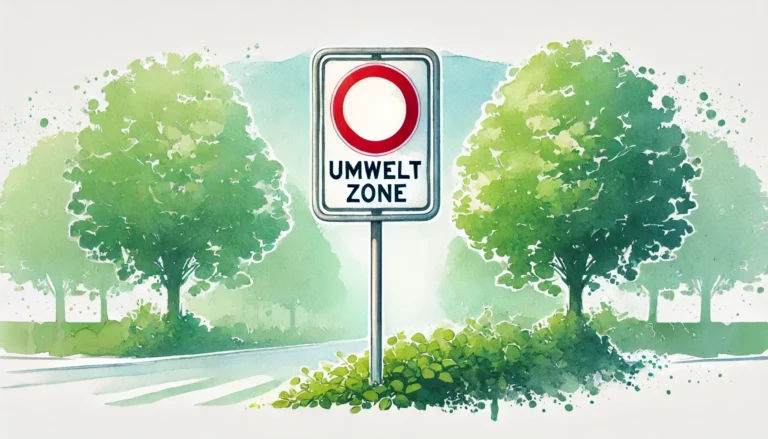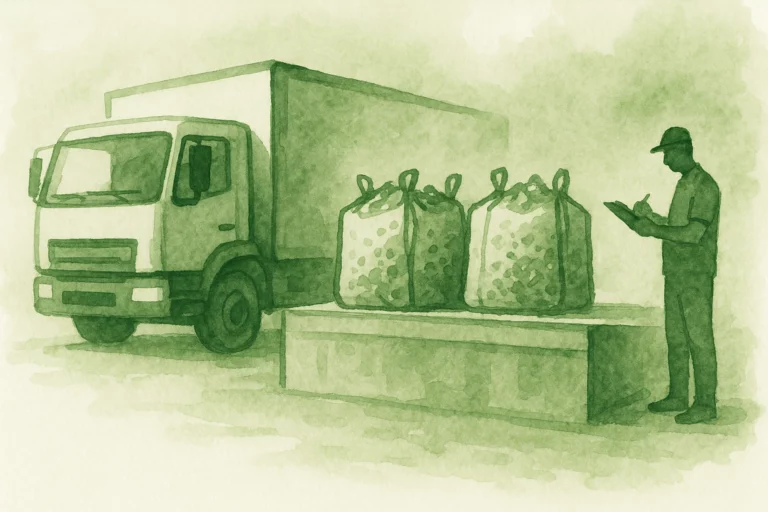How does proper waste management affect a company's reputation?

In today's world, where environmental awareness plays an increasingly important role, waste management is a key element of business strategy. European companies that successfully implement green practices gain a competitive advantage, building a positive reputation and strengthening customer trust. Adequate waste management not only protects the environment, but also influences brand perception in the market, becoming an important success factor.
Waste management and its importance for businesses
Waste management is an extremely important aspect of European companies' operations, especially in the context of increasing regulatory requirements. In the European Union, the industrial sector accounts for a significant proportion of the waste generated, highlighting the importance of managing this resource effectively. According to a Eurostat report in 2020, companies in Europe generate around 2.5 billion tonnes of waste each year. Of this, a significant proportion, over 60%, comes from the mining and construction industries.
However, waste management is not just a legal issue. It also has a huge impact on companies' operating costs. The introduction of appropriate processes, such as recycling, reuse of raw materials and waste minimisation, allows companies to reduce production costs and landfill charges. In this way, waste management becomes an integral part of business strategy, which can significantly affect a company's financial performance and reputation. Waste transport is also an important element in waste management.
The role of social responsibility in building a company's image
Corporate social responsibility (CSR) has become an indispensable part of the marketing strategy of European companies. Customers are increasingly choosing products from companies that are actively involved in environmental activities. According to a study published by the Edelman Trust Barometer, 76% Europeans expect companies to take action on the environment, even if this is not their core business .
In this context, waste management plays a key role. Examples from European companies such as Germany's Siemens and Sweden's H&M show that a responsible approach to waste management can bring significant benefits in terms of increasing customer confidence and strengthening market position. Siemens, for example, has invested in advanced recycling and resource recovery systems. This has allowed the company to reduce its carbon footprint and strengthen its image as a leader in sustainability-oriented technological innovation.
Waste management - examples of positive impact on company image
European companies that invest in green practices not only gain a competitive advantage, but also build a lasting relationship with their customers. A prime example is the Dutch company Philips, which has been promoting the idea of a circular economy for years, implementing solutions to minimise waste. Thanks to Circular Lighting programme, Philips offers a lighting rental service, rather than traditional sales, which enables efficient management of used products and materials. Such initiatives have made a significant impact on the perception of the company as a leader in sustainability .
Another European example is IKEA, which has consistently implemented its sustainability strategy with a focus on recycling and waste reduction. This company has committed to recycle all its products into secondary raw materials by 2030. These actions, combined with transparent communication, have contributed to increased customer loyalty and strengthened IKEA's position as a global leader in sustainable design and production.
What about when waste management is carried out incorrectly?
Improper waste management can have serious consequences for both large corporations and small and medium-sized enterprises in Europe. All the more so as The latter account for almost 99% of all Old Continent companies. Reports concerning companies operating in the manufacturing sector show that the lack of appropriate waste management strategies often leads to violations of environmental regulations. In turn, this results in high financial penalties and significant reputational damage. These problems often stem from a lack of resources, knowledge and support for sustainable waste management practices.
Companies that do not implement effective circular economy strategies run the risk of inefficient use of resources and over-generating waste. This in turn can lead to further financial and operational difficulties. Therefore, proper waste management not only protects the environment, but is also crucial to the long-term sustainability and success of small and medium-sized enterprises.
Importance of waste transport permits in the context of reputation building
An element of responsible waste management is its transport for recycling or disposal. Companies that hold waste permits (or have them transported professional carriers), play a key role in ensuring regulatory compliance. Having such licences is not only a formality, but also a confirmation that the company operates to the highest environmental standards. These standards are, as it were, enforced by EU regulations and those in force in the countries to which waste is delivered.
Compatibility with regulations is not only a means of protection against sanctions, but also an element of brand credibility. European customers, especially those in the B2B sector, increasingly expect full transparency and compliance from their suppliers. In this way, waste transport permits are becoming an important tool in building trust and gaining a competitive advantage in the market.
Communication and transparency in waste management
Effective communication about waste management is key to building a positive brand image. Companies that speak openly about their environmental activities gain the trust of consumers and are seen as environmental leaders. As we mentioned earlier, transparency in operations, especially in the context of waste management, is becoming increasingly appreciated by customers and stakeholders.
Social media plays a key role in this, enabling companies to communicate directly with their customers. For example, the French company Danone regularly publishes environmental reports, in which it reports on its progress towards its sustainability goals. They are part of the company's broader strategy, which focuses on transparently communicating climate action, regenerative agriculture and the circular economy. Such activities strengthen customer loyalty and build a positive brand image as a responsible market leader.
Cooperation with partners and stakeholders
Effective waste management often requires collaboration with a variety of partners, including suppliers, NGOs and local communities. Working with partners who share environmental values can bring tangible benefits in the form of mutual support and knowledge sharing.
One example is the German company BASF, which works with various partners to develop innovative solutions for chemical recycling. Through collaborations with universities and start-ups, BASF managed to develop modern technologieswhich enable difficult-to-recycle plastic waste to be transformed into new chemical raw materials. Such initiatives not only support the local economy, but also build a positive brand image on a global level.
Waste management - future prospects and brand development
The future of waste management in companies will be increasingly dominated by new technologies and innovative solutions that aim to minimise environmental impact. Process automation, digitalisation and the use of artificial intelligence in waste management are just some of the trends that could revolutionise the sector in the coming years.
European companies such as Spain's Inditex, owner of brands such as Zara, already invest in future technologiessuch as textile recycling and closed material cycles. These innovative practices have the potential not only to revolutionise the fashion industry, but also to make sustainability an integral part of brands' growth strategies. Companies that are already committed to innovations in waste management can expect to grow their reputations as sustainability leaders.
***
Appropriate waste management is a key element in building a brand's reputation, especially in Europe, where environmental regulations are becoming increasingly stringent. Companies that successfully implement green practices can count on customer loyalty, increased brand value and a competitive advantage. Transparency in operations, collaboration with partners and investment in new technologies are just some of the factors that can contribute to success in this area. The future belongs to companies that understand that sustainable waste management is an investment in their long-term growth and success in the market.






